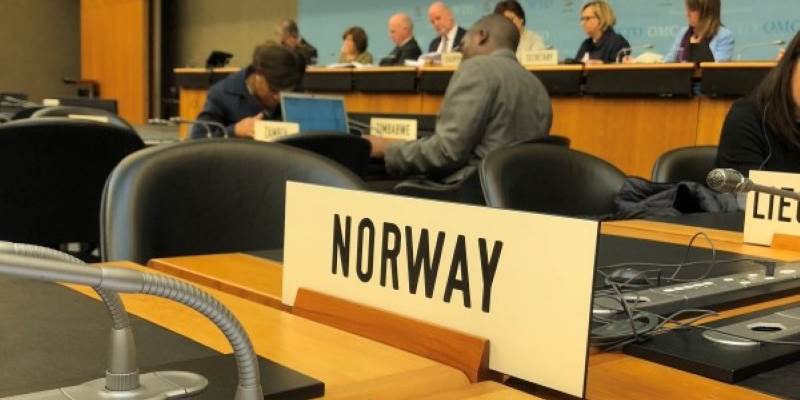Delivered by Ambassador Dagfinn Sørli
Madame Chairwoman,
On 18 October, Norway submitted its request for the establishment of a panel in this dispute regarding the United States’ additional tariffs on certain steel and aluminium products of 25% and 10% respectively.
In making this request, Norway joins six other co-complainants in seeking to bring the United States’ steel and aluminium tariffs before a WTO panel. This collective resort to dispute settlement reflects the serious concern of the WTO Membership over the United States’ actions. It also reflects trust and confidence in the WTO as a forum for resolving international trade disputes.
The seven panel requests reflect a shared conviction among the co-complainants: the US steel and aluminium tariffs are inconsistent with the United States’ WTO obligations.
In particular, the tariffs fail to respect the United States’ obligations under the Agreement on Safeguards. We appreciate that the United States does not characterize the steel and aluminium tariffs as “safeguard measures” as a matter of US municipal law. However, the question is not one of municipal law.
Rather, the question is whether, as a matter of WTO law, the steel and aluminium tariffs constitute “safeguard measures” under the Agreement on Safeguards. It will fall for the WTO panel to decide which WTO obligations apply to the US steel and aluminium tariffs, based on an objective assessment of the “content and substance” of the measures, and the applicability of the covered agreements.
The steel and aluminium tariffs also violate cornerstone principles of the GATT 1994. The United States imposes duties on imports at levels higher than those provided for in the US Schedule of Concessions. Moreover, the United States has granted select WTO Members exemptions to the steel and aluminium tariffs. No such exemptions have been extended to the seven co-complainants. The US measures, therefore, involve a material difference in the treatment of imports from different WTO Members.
The measures imposed by the United States have affected Norwegian exports of steel and aluminium since they came into effect on 23 March 2018. Norway is deeply concerned about the United States’ action in this case, and the negative impact it will have on the WTO system, if left un-challenged. That is why Norway’s reasons for bringing this dispute go beyond the actual impact of our exports of steel and aluminium, and is evenly linked to our primary interest in maintaining, as a matter of principle, the rules-based multilateral trading system. Norway is worried that the United States would adopt measures so evidently inconsistent with obligations fundamental to the rules-based trading system and offer a purported justification that is so evidently divorced from real-world security concerns.
Norway appreciates the sensitivity of the matters raised in this dispute. However, Norway is confident that a WTO panel will be well-equipped to assess the co-complainants’ claims, using the rules and procedures set out in the DSU and the covered agreements. This is not, after all, the first sensitive dispute to come to the WTO. Indeed, Norway values the WTO dispute settlement system precisely because of its tried and tested ability to handle sensitive disputes.
Norway requested formal dispute settlement consultations with the United States on this matter on 12 June 2018, and held consultations with the United States on 19 July 2018. Unfortunately, such consultations failed to resolve the dispute. Accordingly, Norway requests that a panel be established with standard terms of reference.
Like other co-complainants, and with reference to Article 9.1 of the DSU, Norway requests the establishment of a single panel to examine all seven complaints brought today in relation to the same US measures on imports of steel and aluminium, as all seven panel requests are related to the same matter.
